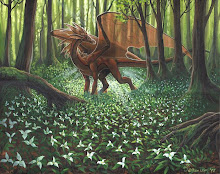In my first major writing piece of the year, an essay of Paolo Coehlo’s book, The Alchemist, I had some difficulties with my ideas and content, my writing did not always flow well, and with that, came other problems. When I gave the topic, I had a bad habit of breaking focus on it and making it seem weak and it appeared I did not truly understand the topic. I also found many good ideas prior to the writing piece but I was unable to give a strong explanation about them, so the ideas became useless to me. As an example, when I found a quote that I thought worked well with the topic of the paragraph, I would not be able to say why I thought it was a good quote and I stumbled on finding the correct context. Though, as the year progressed, and we began to cover more creative writing techniques in class, I improved significantly. In my Julius Caesar essay, I was able to make sense of my writing by reviewing the main ideas and topics of the book over and over. To show I had a firm grip on the topic, I went through the book multiple times to find the ideal quotes that I knew I could explain and that I knew would do well to give good context. When I found the main contexts of the chosen quotes, the rest came easily. I could link in relevant and interesting ideas that would not originally be in the writing piece. Along with give me good context, the quotes and ideas had to be able to keep the reader interested.
In my Alchemist essay, I even found trouble in keeping my attention on the piece, and I still have problems with it. The hooks I brought to the piece were not strong enough and kept breaking under the lack of interesting elements. Along with my topic/starting paragraph, my body paragraphs were not started clearly, making it hard for the reader to understand the points I was trying to give. Over time, I was able to develop the skill to create good hooks for my reader. The quotes I had chosen for my Julius Caesar Essay were read over and over again, by me and my peers to see if they made enough of an impact in my writing to earn high marks. To achieve superior organization I think I may need much more preparation time to get the best I can out of my topic and quotes to create an interesting piece of work.
As far as improvement goes, I believe I have made some significant progress. My writing now, as compared to then, is much easier to understand and easier to flow through to get the main ideas. My original pieces of work did not do well in terms of flowing with each other and connecting to quotes and so on and so forth, whereas my work now is easier for me to go through when revising and when reading. I was also finding trouble in giving a clear, clear topic in my essays before so my writing piece would sound a little strange, as it would be hard to understand what it was about. All in all, throughout the course of the year, I picked up quite a few skills that made my work easier to read and in the long shot, write. I learned how to easily identify the main topics of the literature, to find appropriate ways to address them in writing and to get a clear visual across to my reader with some creative thinking involved.
The SLRs that worked best for me in writing my essays were Think Creatively and Collaborate Constructively. It takes effort to make a piece of writing sound nice and smooth but it also takes some imagination to add interesting elements to it as well. When writing my essay, I, as well as everyone else, despise reading bland, lengthy paragraphs that do not hook you in what so ever, so I make an effort to do so. I toss in some emotion into the mixture with strong words that grab attention such as ‘Tragedy’ or ‘True Joy’ and other words that will make someone want to read more. As well as keeping a slight grip on the audience, I also had to make sure I was giving my point across, which was the main point of the whole essay. My essay could be lengthy, bulky and stretched out, but it is worthless if I there is no point to the words I use. My statements have to be chosen carefully to make sure they give the reader a solid base on which they can build the rest of the information given from the writing piece.





